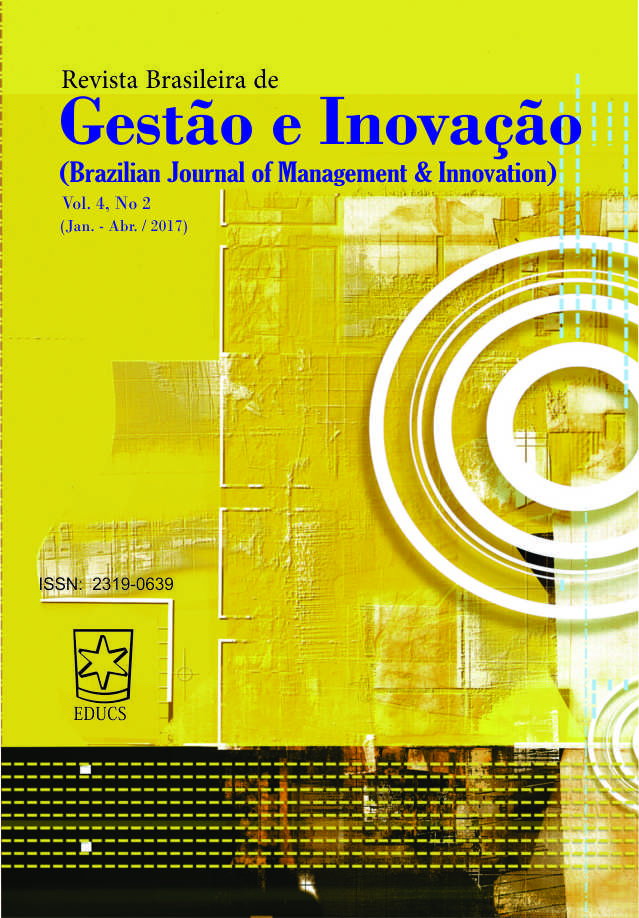INNOVACIÓN Y CREACION DE VALOR COMPARTIDO EN EL AGRONEGOCIO ARGENTINO: UN ESTUDIO DE CASO | INNOVATION AND SHARED VALUE CREATION IN ARGENTINE AGRIBUSINESS: A CASE STUDY
Keywords:
innovación, sustentabilidad, creación de valor compartido, tecnología agrícola, inoculantesAbstract
La innovación, la sostenibilidad y la creación de valor compartido resultan ser condiciones relevantes para la competitividad de las firmas. El presente trabajo, a través del estudio de una empresa argentina de tecnología agrícola, aborda las mencionadas temáticas y tiene por objetivos: (a) caracterizar el perfil innovador y sustentable de la compañía, vinculando sus invenciones a la literatura referida al tema; y (b) estimar la creación de valor generada por la principal innovación sustentable de la empresa en la producción de soja de la Argentina. A tal fin, metodológicamente, se vinculan los conceptos teóricos revisados con la unidad de análisis seleccionada y se efectúan cálculos para la estimación del valor generado por innovaciones específicas. Los resultados indican que la empresa estudiada es altamente innovadora (premios obtenidos, innovaciones incrementales identificadas e importantes avances logrados en la tecnología de inoculación) y sustentable (dimensiones ambiental, económica y social). Asimismo, se encuentra que el empleo de productos innovadores (inoculantes líquidos) genera un ahorro de aproximadamente el 50 % del fertilizante (urea) necesario, comparado con un sistema de fertilización tradicional. Además, reduce el consumo de combustible requerido para el transporte de la urea economizada y evita las erogaciones para su aplicación. El estudio contribuye, académicamente, pues operacionaliza conceptos abstractos (innovación, sustentabilidad) a través del abordaje conjunto y aplicación a un caso concreto. Pragmáticamente, la estimación del impacto del inoculante en la cadena de valor de la soja resulta útil para los actores involucrados.
DOI: 10.18226/23190639.v4n2.08
Downloads
Published
How to Cite
Issue
Section
License
The author must guarantee that:
- there is full consensus among all the coauthors in approving the final version of the document and its submission for publication.
- the work is original, and when the work and/or words from other people were used, they were properly acknowledged.
Plagiarism in all of its forms constitutes an unethical publication behavior and is unacceptable. Revista Brasileira de Gestão e Inovação has the right to use software or any other method of plagiarism detection.
All manuscripts submitted to RBGI - Revista Brasileira de Gestão e Inovação go through plagiarism and self-plagiarism identification. Plagiarism identified during the evaluation process will result in the filing of the submission. In case plagiarism is identified in a manuscript published in the journal, the Editor-in-Chief will conduct a preliminary investigation and, if necessary, will make a retraction.
This journal, following the recommendations of the Open Source movement, provides full open access to its content. By doing this, the authors keep all of their rights allowing Revista Brasileira de Gestão e Inovação to publish and make its articles available to the whole community.
RBGI - Revista Brasileira de Gestão e Inovação content is licensed under a Creative Commons Attribution 4.0 International License.
Any user has the right to:
- Share - copy, download, print or redistribute the material in any medium or format, linking to RBGI site.
- Adapt - remix, transform and build upon the material for any purpose, even commercially.
According to the following terms:
- Attribution - You must give appropriate credit, provide a link to the license, and indicate if changes were made. You may do so in any reasonable manner, but not in any way that suggests the licensor endorses you or your use.
- No additional restrictions - You may not apply legal terms or technological measures that legally restrict others from doing anything that the license permits.
#RBGI







